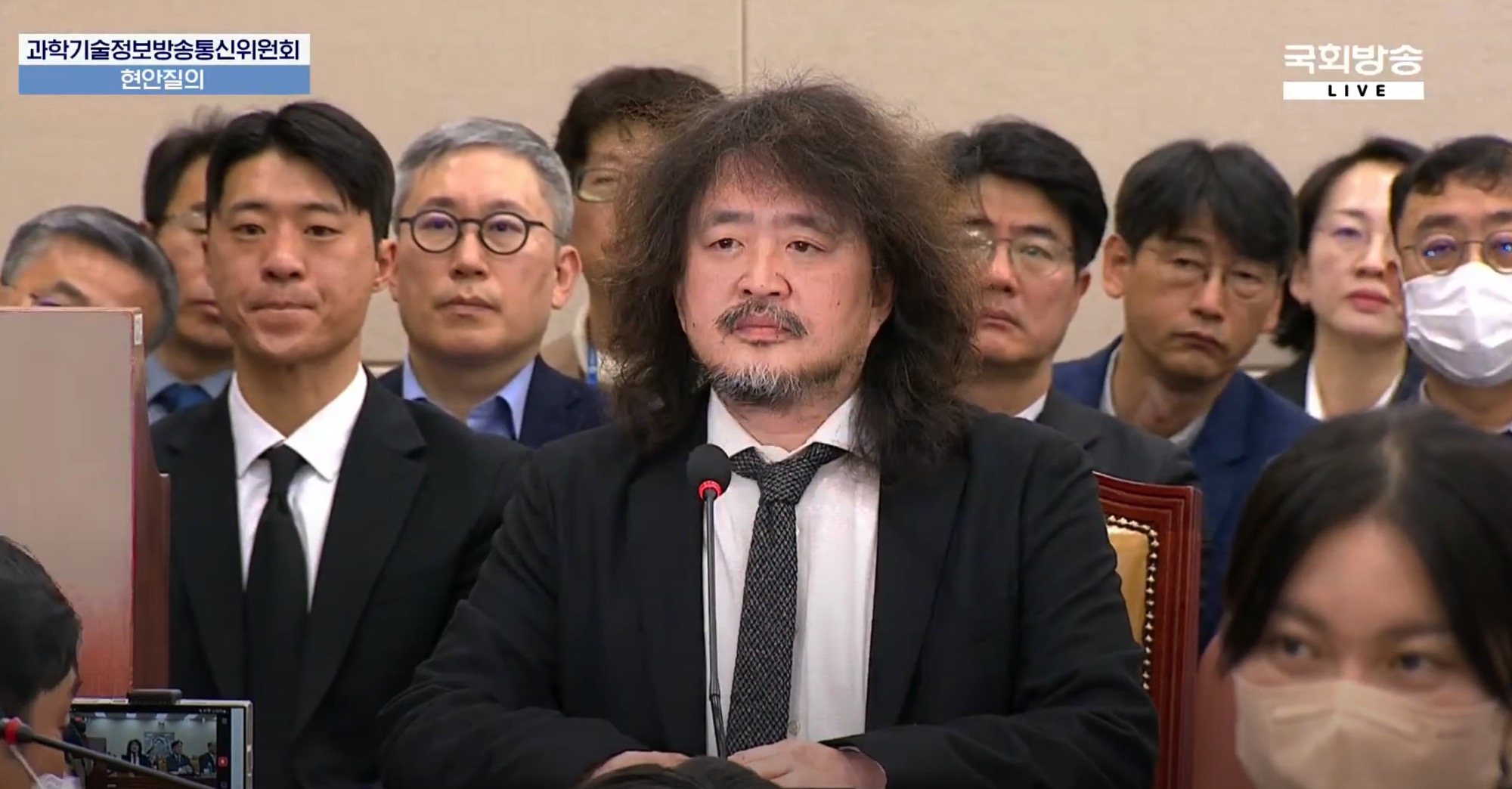Kim Ou-joon: poisoning democracy’s well
Let’s go back to the night of the martial law. The first thing I did after I learned that it was no joke was to survey the status of the media. It’s common for media outlets to be seized during a coup. I needed to monitor any developments as I moonlight as a correspondent for a press freedom watchdog.
Surprisingly, there was no sign of a military takeover. An anchorman at a conservative news network seemed puzzled by the absence of military presence in their newsroom. The situation remained unchanged even after the first (and only) martial law decree declared that the media was under military control.
Next day, yet another news that sounds like a joke was waiting for me. Military personnel were sent to arrest Kim Ou-joon and block access to his YouTube studio, it said.
Of course he is much more than a YouTuber. Kim Ou-joon, whom I'd like to call Minjoo's Tucker Carlson, is the single biggest political influencer in Korea. But leaving all established media behind and coming after one YouTuber? Truly a novel way of insulting the press.
— Subin Kim (@SubinBKim) December 5, 2024
President Yoon’s affinity for YouTube political channels is well documented. He’s likely well aware of their influence. But his relationship with Kim runs deeper than mere viewership. It appears Yoon was heavily influenced by Kim’s various conspiracy theories.
A telling detail from Yoon’s speech last week was his explanation for dispatching military forces to the National Election Commission. Despite his careful word choice, it was clear he subscribed to a “stolen election” conspiracy.
Reports suggest Yoon believes April’s general election, where his ruling party suffered a crushing defeat, was rigged. His suspicions extend further: according to one report, he believed election rigging prevented him from winning the previous election by a margin of more than 10 percentage points (his actual margin was less than 1%).
In the wake of the martial law declaration, investigations into Yoon’s past revealed that his beliefs about election rigging have deep roots. Since Park Geun-hye’s victory in 2012, certain leftist groups had insisted the presidential election was rigged. Their campaign included sparsely attended rallies in Gwanghwamun, which Yoon, then a prosecutor, had joined. Months later, he joined the special prosecutor’s team investigating President Park.
The campaign’s pinnacle was a documentary film titled “The Plan,” released one month before the next presidential (by-)election. The film scrutinized the electronic ballot counting system, suggesting that statistical anomalies might indicate manipulation. It focused on the “K-value,” a method for analyzing voting patterns, arguing that similar irregularities across different areas suggested potential tampering—claims that were subsequently refuted by media outlets, including left-leaning ones.
Guess who was the producer? Kim Ou-joon is more than just the architect of leftist conspiracy theories. For the Minjoo Party’s devoted followers, he’s a Tucker Carlson and Joe Rogan combined. He pioneered alternative media in South Korea with his highly successful podcast during President Lee Myung-bak’s administration. (I confess I was also an avid listener back then.)
Kim has injected his theories into every Korean political crisis. He produced another film about the Sewol ferry disaster, suggesting the crew intentionally sank the vessel. (Both films were crowdfunded, though Kim never disclosed his budget expenditures.)
In a sense, his early promotion of conspiracy theories has flourished in today’s landscape of YouTube videos catering to those unwilling to accept electoral defeats. But Kim wasn’t content to stop there. At a parliamentary hearing the day before the second impeachment bill vote, he claimed the military planned to assassinate the ruling party leader. Even the Minjoo Party’s internal report dismissed this as “highly embellished with fictional elements.”
His influence over the Minjoo supporters is second to none. In every election, those who seek Minjoo’s nomination make a pilgrimage to his show, kowtowing—sometimes literally—to his cues.
Even lawmakers aren’t immune. Days after the internal report emerged, former National Intelligence Service official and current Minjoo lawmaker Park Seon-won, whose aide authored the report, appeared on Kim’s YouTube show to apologize for dismissing his claims. Park stated he had revised the internal report to acknowledge their credibility.
Despite Park’s stated reasons for the revision, reports suggest the main motivation was backlash from Minjoo’s die-hard supporters, as his justifications lacked credibility. People’s Coalition for Media Reform is the only left-leaning civil organization that criticized a Minjoo lawmaker who put Kim on the hearing, and the Minjoo supporters didn’t like it as you can see in its comments section.
With conservatives in disarray, the Minjoo Party is best positioned to restore order amid Yoon’s chaos. However, it has deteriorated as a mass party, failing to garner broader public support under pressure from personality cultists. This partly explains why Lee Jae-myung lost to a political novice in the last presidential election. (Lee got a 37% support rate in a Gallup poll today while his party got 48%.)
Kim Ou-joon represents the party’s darkest symptom. He has sown seeds of chaos for over a decade, and we now witness the harvest in numerous far-right YouTube videos crying “stolen elections”—a belief shared by the President himself and military brass. (Recently, a Minjoo veteran joined these ranks.) Kim now operates his own polling firm, directly influencing Minjoo primaries and elections.
